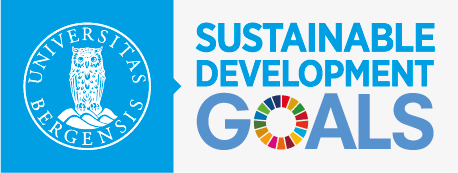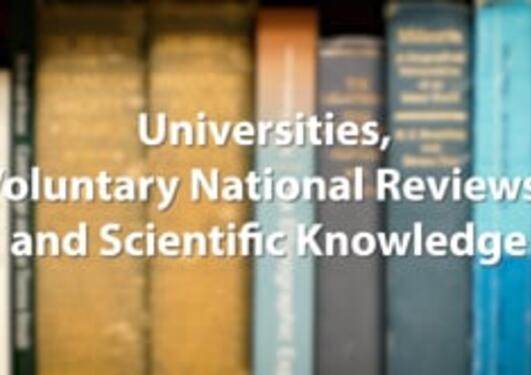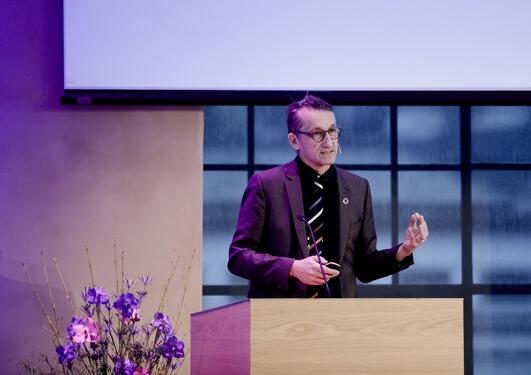Norwegian universities demand SDG action
“It is vital for Norway to have a national action plan for the Sustainable Development Goals and only natural for academia to inhabit a key role by contributing with research-based knowledge and critical thinking on the goals,” says Vice-Rector Annelin Eriksen at the University of Bergen.

Main content
This autumn, Norway’s government has asked for input to the national action plan for the Sustainable Development Goals (SDG). The plan will exhibit and exemplify SDG-related actions adapting this to Norwegian conditions and challenges.
Broad dialogue for inspiration
Minister of Local Government and Modernization Nikolai Astrup travelled across Norway and met with stakeholders from different sectors. One meeting was on September 8 in the University Aula in Bergen, where the university sector presented its input to the national SDG action plan. This was followed by meetings with stakeholders from other sectors followed by written input to the ministry.
“It is good to see the department invite stakeholders across sectors to a broad dialogue on the action plan. Not the least having the minister visit universities for inspiration and feedback,” said Vice-Rector for Global Relations Annelin Eriksen at the University of Bergen at the input meeting in Bergen.
She heads the university sector in Norway’s national committee for the 2030 Agenda, which gave input to the SDG action plan on behalf of the sector directly to the minister.
Three dimensions of development
In particular, Eriksen stressed three dimensions of development when presenting the national committee’s proposal.
“Basically, sustainability relates to the relationship between three dimensions of development: the social, the fiscal and nature-environment,” said the vice-rector.
She pointed to the 1987 report Our Common Future from the Brundtland Commission and this definition of sustainable development.
“Further, this is a global agenda, which means that work towards the SDGs are premised on crosscutting and scalable solutions,” said Eriksen.
How academia can contribute
The vice-rector concluded by putting forth two concrete suggestions from the national committee for the 2030 Agenda. She underlined the complexity of working across sectors and also the inherent contradictions between the 17 goals and 169 sub goals of the agenda.
“First, the national committee for the 2030 Agenda proposes an interdisciplinary research programme based on the methodological premises for work towards sustainable development. This programme should be financed jointly by the ministries,” said Annelin Eriksen.
“Second, we propose that the Global Sustainable Development Report, written by the global expert group headed by Professor Peter Messerli and launched at the High-level Political Forum at the UN in 2019, to be used as a starting point to identify the vital focus areas for knowledge development and the establishment of a separate research and innovation programme related to these fields and to address sustainable development in general.”


